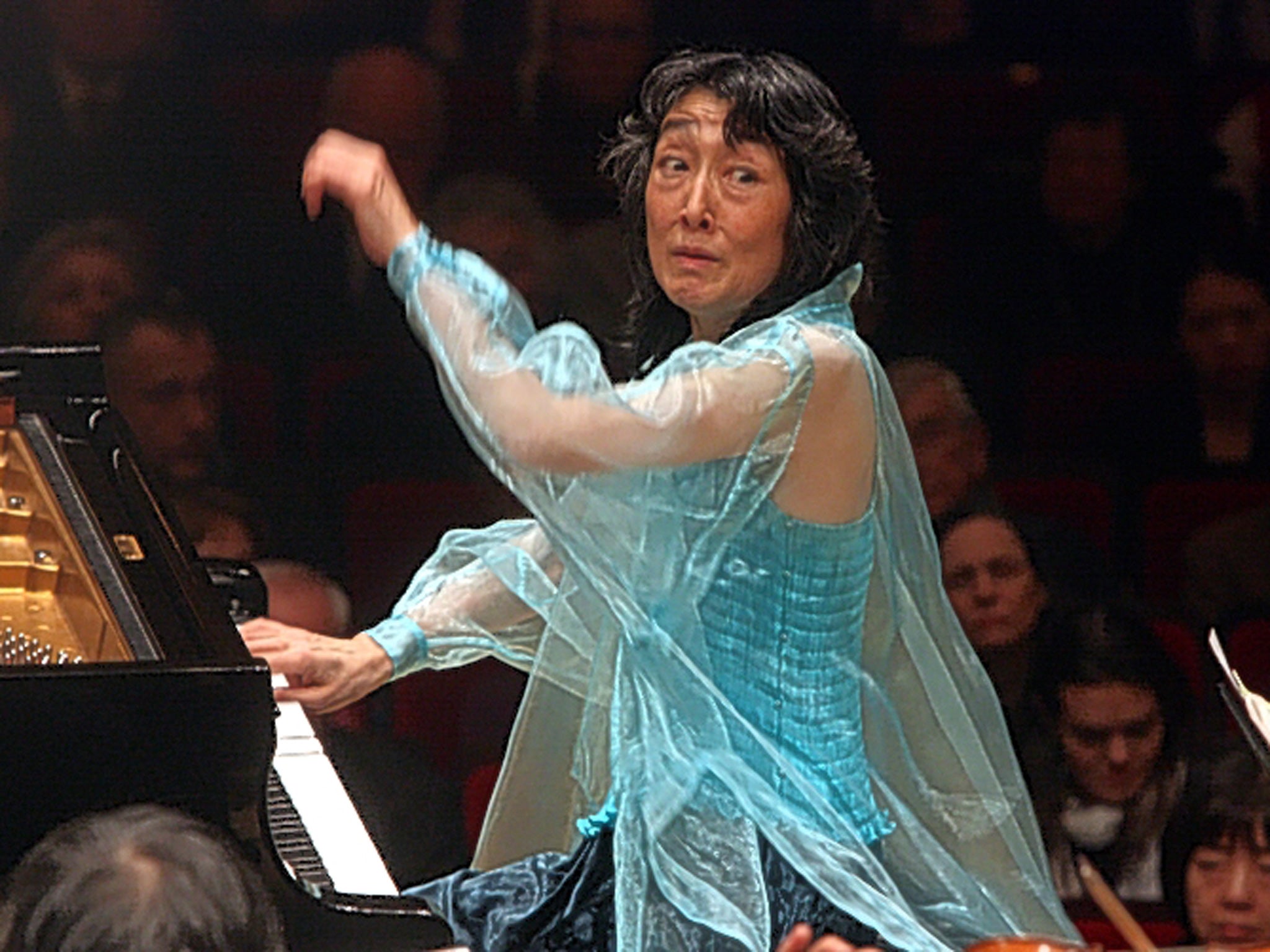Mitsuko Uchida: The plight of the music prodigy pushed too far, too fast
Young musicians need time to develop, the world famous pianist tells Jessica Duchen

Mitsuko Uchida does not seem easy to please. Her exacting standards apply to everything from her own piano playing, which is internationally revered, to chocolate – "this is the best in the world," she says, offering me a square of something very dark. There is darkness, too, to her words about how young musicians are faring today as they build careers in a cut-throat market, focused, in her view, excessively on rapid returns rather than lasting artistic substance.
Some significant talents, she suggests, risk wasting their potential because, in a get-rich-quick culture, they are being "overheated" by the music industry, doing too much, too young, and failing to develop further. "With anything in life, it is better to go slowly," she says. "I find it irresponsible of certain record companies and managers to sell the saleable youngsters very quickly. It means they have no time really to study and therefore they have nothing to say in their music. They play only a certain number of pieces and regurgitate these all the time. That's not what a young musician should be doing."
Damaging pressures can start earlier, too – though these used to be worse: "In 1762 Leopold Mozart took six-year-old Wolfgang on his first concert tour," says Uchida. "If any parent today did that, a child protection society would be after them!" Still, she despairs of pushy parents. "I have seen too many youngsters who have been pushed too hard, too early and they disappear very quickly," she says. "Prodigy mothers and fathers are the worst. I have nothing to do with them."
Unusually, though, she suggests it is not only parents and the music industry that make mistakes, but youthful musicians themselves. Uchida was a prodigy who survived the experience: born in Japan, the daughter of a diplomat, she was accepted into the Vienna Academy of Music aged only 12 and gave her first recital at the city's Musikverein at 14. Yet she insists she never bought into the notion of her own talent. "As a kid I always disliked what I heard from my own hands," she says. "I thought: OK, my parents think I am talented, but they are biased because they are my parents. And with my teachers, if they praise me, it's because the rest are bad. I was right."
In the end, she insists, young musicians must take responsibility for their progress and not be complicit in their own premature exploitation. "You cannot blame anybody else," she says. "You have to have your own mind. But of course, if a record company hits you up, it's difficult for a young one to say: 'No, I'm not ready.'"
Uchida is a trustee and artistic figurehead for the Borletti-Buitoni Trust, which for a decade has been providing financial awards to exceptional young musicians and ensembles. "One thing I don't go for is quick money and quick fame," she declares, "and I don't go for tastelessness for the sake of selling something. We look for young artists who have something to say and who may need more time." Typically these musicians are aged 21 to 32, older than "the people managers and record companies might want, which generally is 'as young as possible'."
Excellent musicians to have benefitted from the scheme include the pianist Jonathan Biss, the violinist Alina Ibragimova and the Ebène string quartet. Uchida is lending them musical support, too, notably in a concert with some now-starry past winners.
Her message sounds ferocious, but at its heart is boundless love for music. "Great music is beyond beautiful, and everybody should experience it," she says. "So please don't sit at home in the evening and watch television. Go to a concert."
Mitsuko Uchida and Borletti-Buitoni Trust Celebration, Queen Elizabeth Hall, London SE1 (0844 875 0073) 17,18,19 May
Join our commenting forum
Join thought-provoking conversations, follow other Independent readers and see their replies
Comments
Bookmark popover
Removed from bookmarks